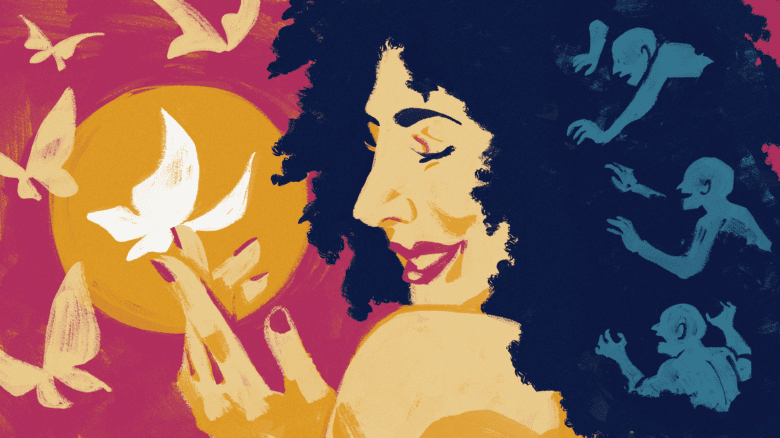Declining participation has some leatherfolk wondering if the competitions are past their expiry date but organizers of Mr Leatherman Toronto (MLT) say it’s not so.
Since 1988 MLT has crowned an annual representative of the leather/SM men’s community. In recent years the organization has added new titles including the non-gendered Bootblack Toronto and title-holders have generated tens of thousands of dollars for community groups.
But participation in the competition is waning. “In the past three years we have noticed a decline,” says John Brodhagen, executive producer of the competition.
Five years ago eight contestants vied for the MLT title. Last year the numbers dropped to four; there were twice as many judges as contestants. So far only a handful of contestants have come forward for this year’s MLT and the number of feeder events that produce candidates is down too.
In part this is due to a change in MLT’s policies, says Brodhagen. To ensure fresh blood and a more interesting competition the organization no longer allows failed contestants to run again year after year.
Declining participation in the local leather competition can also be seen as a reflection of changes on Church St and in the larger queer scene. MLT entrants are sponsored by local bars and businesses and several past sponsors have closed up shop — including the Barracks and Trax — or only recently reopened, like The Barn.
But shifting interest away from competitions and titleholders may also be the result of a larger shift in leather and fetish subculture.
“Leather communities across North America are in the midst of great change,” says Brodhagen.
Trevor Jacques, a sex researcher and author of On the Safe Edge, a respected guide to SM sexuality, says the cultural shift away from competitions is a natural evolution.
“In a perverse sense what’s happening is exactly what was supposed to happen,” says Jacques.
The proliferation of leather and fetish culture means that there are many more options for people looking to build community based on kink.
“You don’t need a title to be active in the community,” says Dan Madden, who participated in this year’s Eastern Canada Leatherboy contest and is copresenting a workshop at this year’s MLT weekend.
Madden says that new alternatives like The 101s, a kinky coming out group, and the noncompetition activities of MLT itself, like its everexpanding series of educational seminars, are drawing focus away from competitions.
“Most people don’t feel the need to express their sexuality by joining organizations or providing community service,” says Duncan MacLachlan, Mr Leatherman Toronto 1996. “There are other ways to build community and develop leadership capacity.”
Educating newcomers about leather and kink isn’t something you need a sash to do, for example.
“Leather contests are less attractive and important to people now — and that makes total sense to me,” says MacLachlan, who is still very active in the leather community and serves as gay men’s outreach coordinator at the AIDS Committee of Toronto.
“I’ve long held that leather contests are not sacred — and perhaps not even that important,” he says.
Not to mention the fact that being a titleholder can be a lot of work, says Dart, Mr Black Eagle 2007. When he won his first title in Southern California six years ago he says he had no clue what he was getting into.
“It may seem like a wet T-shirt contest but it’s quite a year’s worth of responsibilities and involvement.” As Mr Black Eagle 2007 Dart says he has devoted himself to community events and raised funds for Hassle Free Clinic.
According to Jacques success as atitleholder is often bound to age and economic class.
“It’s always been difficult to find competitors,” says Jacques. “They tend to be older professionals because it takes time, energy and money, and the negatives of being associated with a ‘sleazy’ leather contest can still be strong, especially for much younger guys who don’t want to spoil their careers.”
It should be no surprise that leather subculture has changed over time. Long before MLT there were bars like the Toolbox and its predecessor 18 East. Prior to that men into submission and domination found community through fetish and motorcycle clubs like the Lanyards, Yorktown Levi Denim Club and Spearhead, all of which started in the ’70s.
Today people are more likely to connect over the internet than they are in a bar or club and the surge in popularity of online social networking has supplanted interest in leather contests, says MacLaughlin.
“Before the internet became the primary way for many of us to hook up, attending or participating in a leather contest was a rite of passage and a sure-fire way to meet other guys into leather,” he says.
Seeking to tap into the online realm this year’s MLT is sponsored by Recon, an international kink/fetish personals website run by UK-based company T101. Brodhagen says the group is actively seeking other ways to bring in the next generation including mentoring younger people to eventually join their board of directors.
“Most leather organizations are still run by the old guard,” says Brodhagen. “We realize that this must change.”
As times change the nature of leather events will change as well. In an online column Mr Leatherman Toronto 2003 Paul Ciantar describes International Mr Leather (IML) as “little more than a cash cow and a very piggy circuit party. Relatively few people attend the actual contest. Most go to dance and have sex all weekend.”
Not that there’s anything wrong with sex and dancing. Madden says that here in Toronto a lot of people “are there just for the dance event,” and less interested in the competition aspect.
MLT does a lot more than hold an annual contest. They create community via seminars, fundraisers and gatherings throughout the year. Should they ditch the competition and keep up all the other good work?
“We are always open to change,” says Brodhagen, noting that the group’s board has had a recent influx of new members. Should the day ever arise when the competition is no more he sees a strong ongoing role for the organization in terms of education.
“I hope the contests never go away,” says Madden. “Yes, it’s a beauty pageant but there’s more to it than that. It allows people to identify with a visible representative of the community.”
Dart agrees. “These contests are part our history and culture,” he says. “As much as we may complain about them we’d miss them if they weren’t here.”

 Why you can trust Xtra
Why you can trust Xtra


